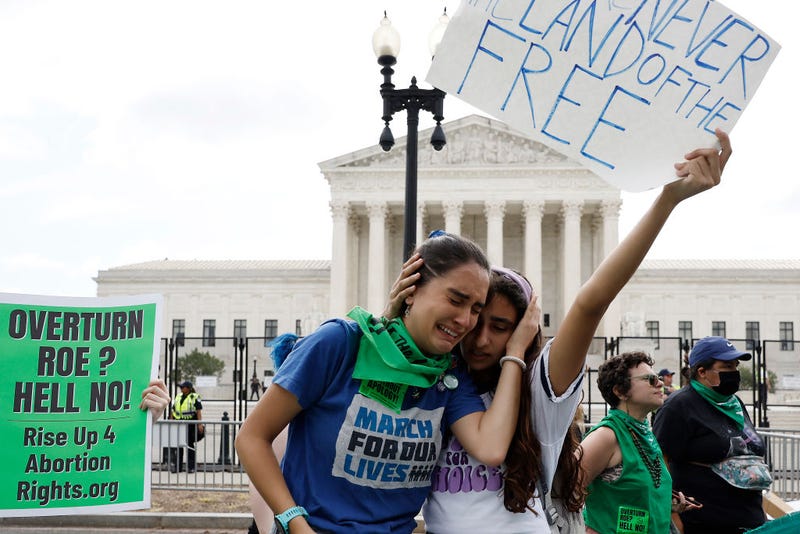
SAN FRANCISCO (KCBS RADIO) – The U.S. Supreme Court's decision to strike down Roe v. Wade on Friday will have far-reaching implications that will ripple throughout the entire country.
For more, stream KCBS Radio now.
Ultimately this decision makes the decision to keep or end a woman's pregnancy political and up to the states to decide, Laurie Zoloth, Professor of Religious Ethics at the University of Chicago, told KCBS Radio's Melissa Culross just minutes after the decision was announced.
"It takes away the federal protections that Roe v. Wade provided for people to make their own decisions or decisions with their clergymen – with their rabbi, with their imam, with their pastor and their doctor – and makes it a matter of state law," she said.
Each state will now make its own determinations as to when life begins, and when pregnancies have to go forward.
"This is essentially a theological decision," she said.
For instance, Jewish people abide by a different set of rules than other faiths. "There are times in the life of a Jewish woman in which pregnancy has to be ended to protect the life and the health of the mother," said Zoloth, who's Jewish herself.
Which is allowed under the Jewish set of laws, she said. The Supreme Court decision effectively eliminates the right of this group of women to choose.
"It's choosing one religious idea of when life begins in many states and making that a matter of law," said Zoloth.
The decision also ignores the implications of women becoming trapped by pregnancies they don’t want, setting aside needs for care and support, which are also often religious ideals.
"It goes right against the notion of religious freedom because there are many religious traditions that say not only is abortion permitted, but it can be mandated in some cases," she said.
This decision may cause people of faith to increasingly engage in acts of civil disobedience. "It happened before, it happened before Roe v. Wade, and it will happen again," she said.
DOWNLOAD the Audacy App
SIGN UP and follow KCBS Radio
Facebook | Twitter | Instagram

